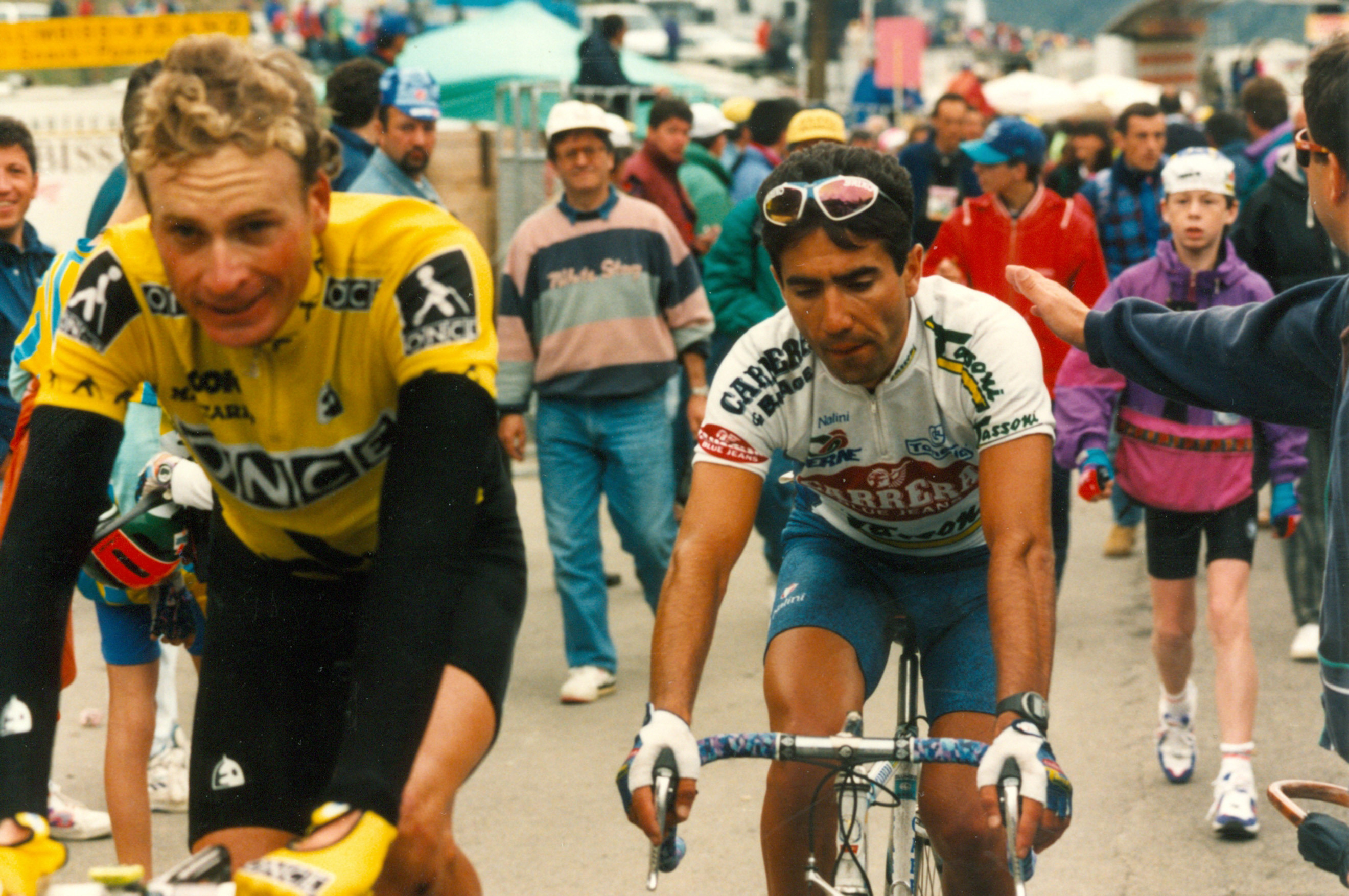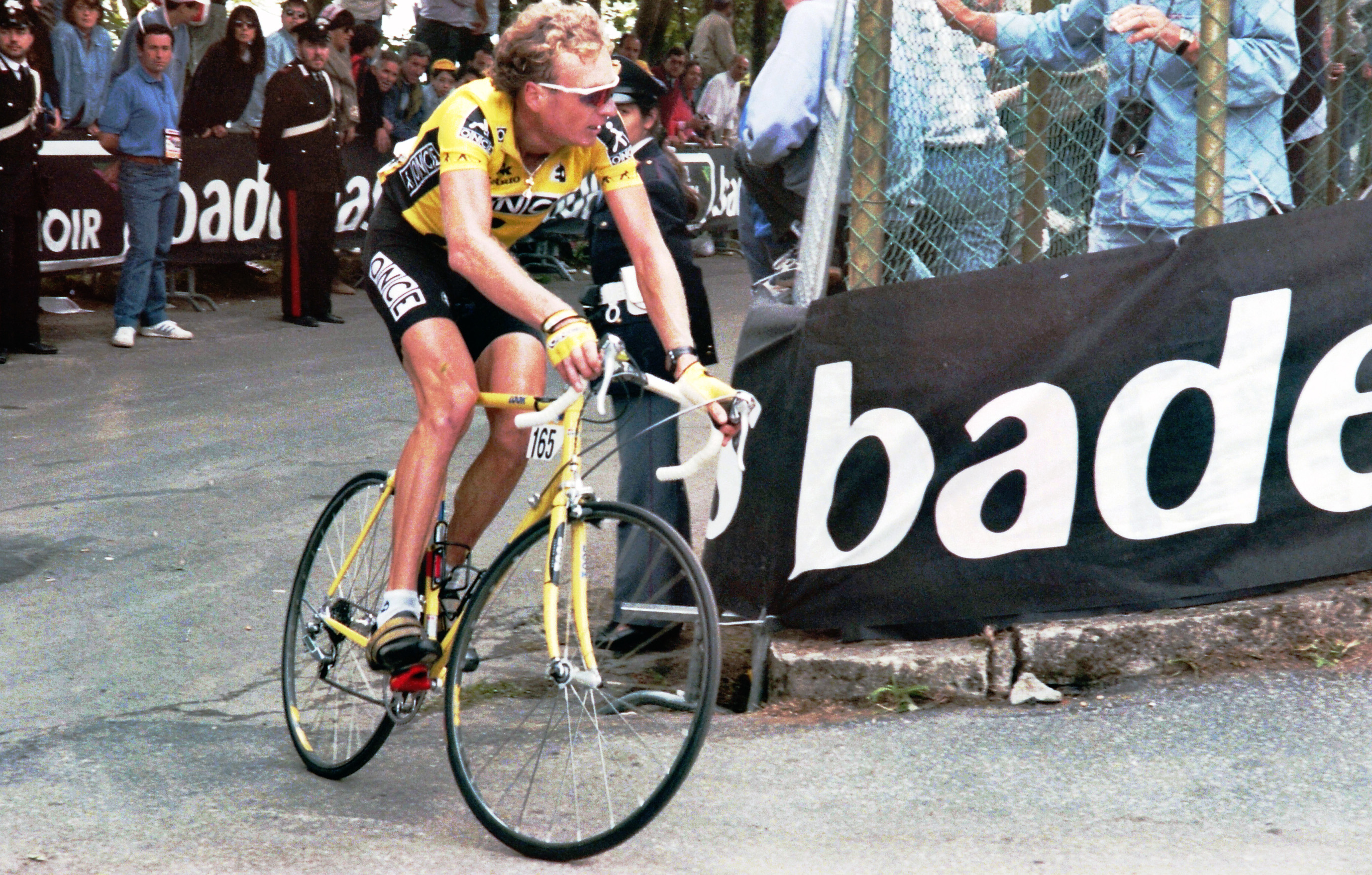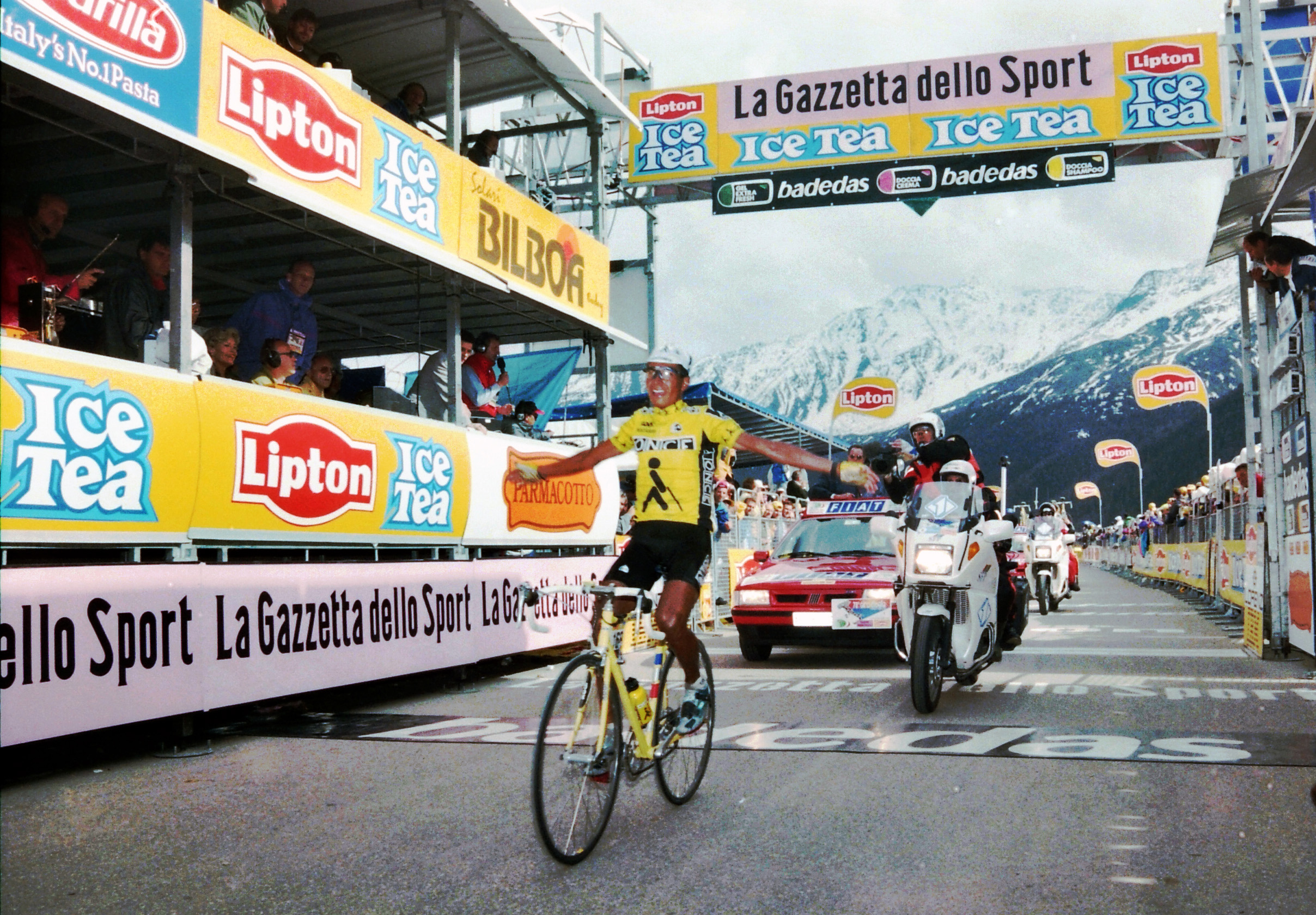'Inhumane and barbaric': Pat Jonker's longest day at the Giro d'Italia
Australian looks back on helping Oliverio Rincón win stage 14 of 1995 race

On the fourteenth stage of the 1995 Giro d’Italia, nothing happened. At least, that was the lament in La Repubblica the day after Tony Rominger maintained his grip on the pink jersey following the leg to Val Senales.
The route had brought the race to the Ötztal Alps, where the preserved 5,000-year-old remains of a prehistoric human – the Similaun Man – had been found four years earlier. The area, Leonardo Coen complained, was "also capable of mummifying and freezing the corpse of this monotonous Giro d’Italia. Because up there, yesterday, nothing happened. Nothing at all: no point in deluding yourself."
Try telling that to Oliverio Rincón, who soloed to stage victory after escaping the maglia rosa group on the long haul to the finish. Better yet, try to telling that to his ONCE teammate Pat Jonker, who spent the first 150km of the stage devotedly burying himself in support of his leader and then the last 90km dragging himself to the finish, all for the dubious reward of doing it all over again the next day.
On the day when nothing happened, Jonker passed the time by covering the 240km from Trento to Val Senales in a stretch over eight hours, climbing above 2,000m three times in the process, meeting rain, snow-banked roads and frigid temperatures along the way. Routine.
"I remember we started at 9 o’clock in the morning and it was basically dark by the time I got to the finish," Jonker tells Cyclingnews. "I’d done all my work for Rincón by that point, so I was about half an hour or 40 minutes behind him coming to the finish. We were almost riding in the dark.
"It was one of the hardest days of my life. We had rain, snow, unlit tunnels. Back then, rider safety wasn’t really that paramount. We were descending into tunnels that were pitch dark, and it was wet and freezing. It’s funny, I don’t remember the days in the sunshine or nice weather. But the most horrible, horrific days in freezing cold temperatures with eight hours of racing – those are the ones I’ll remember to the day I die."

Jonker had just turned 26 and was in his first year at ONCE. While the galacticos, men like Laurent Jalabert, Alex Zülle and Melchior Mauri, spent May away from racing with the Tour de France in mind – routine now, but almost revolutionary for its time – Jonker was part of the team sent to Italy, where Oliverio Rincón was the team’s lone general classification threat.
Get The Leadout Newsletter
The latest race content, interviews, features, reviews and expert buying guides, direct to your inbox!
After a subdued start to the Giro, Rincón was finding his range as the race reached its third weekend. He had additional motivation, too; back home in Duitama, his son Juan Camilo had just been born. The Colombian sought to mark the occasion by winning in Rovereto on stage 13, but he was outsprinted by Pascal Richard. 24 hours later, on the toughest stage of the race to that point, he was eager to try again.
Rincón was an extravagantly gifted climber, arguably Colombia’s best in the period between Luis Herrera and Nairo Quintana, but he needed coddling before the gradient tilted upwards. Jonker’s day was thus broken into two distinct parts: service and survival.
"The plan was to win the queen stage, so we had to look after Oliverio for the first 150km and to make sure he didn’t lose touch because he had the habit of falling asleep and sitting at the back," the Australian says.
"We just made sure we had bidons of tea and hot chocolate and that he was well taken care of in those horrible conditions. Then all of us domestiques were scattered all over the field by the time we got to 200k."
The stage brought the gruppo over Auna di Sopra and then to 2,240m, to the snow-banked summit of the Passo di Pennes. Jonker was still at Rincón’s side when they dropped over the other side, before the stars were separated from their watercarriers on the inexorable haul up the Passo di Monte Giovo.
They set out in sunshine and Rincón, at least, finished in it, too, but temperatures plummeted every time the road snaked upwards. The only thing as bad as climbing those mountains was dropping back down the other side and trying to coax numb fingers into pulling on the brakes. Between the fatigue and the cold, the temptation was to find an exit.
"It was almost inhumane. To be honest, what you’d hope for was that you’d crash on a descent and break your collarbone, so you’d be sent off to hospital," Jonker says. "You could walk away from this misery and suffering that way, but you can’t just abandon. That would ruin your career."
Finishing the Giro was a point of personal pride as well as a professional obligation. On his Grand Tour debut the previous year, Jonker had abandoned the Tour de France. A man can hate every minute of an eight-hour stage and still treasure the experience later. He had to get to Milan.
"You did get an enormous amount of accomplishment from finishing, and a lot of us rode just to finish. We were never going to finish in the top 10 or top 15 at that time," he says.
'What you learn is you don’t think about the next day'
On the final, 20km ascent to Val Senales, the clock on Jonker’s computer flipped into its ninth hour. Shadows had long since started to lengthen. Jonker learned near the summit that Rincón had won, and the boost to the ONCE prize kitty lifted morale but did nothing to alleviate the pain.
Jonker had raced 200km the previous day and he would race 185km – across six mountain passes – the next. The total distance was over 3,700km and there was just one rest day in three weeks of racing. Only in 2002, the year after the San Remo doping blitz, would the Giro make a second rest day a permanent feature.
"Look, I think it was probably way too much and it was probably not good for the sport at the time because obviously we knew what was happening with drugs and everything like that," Jonker says.
"It was barbaric and inhumane, but that’s also what a three-week race should be, isn’t it? The Tour de France was that way too, barbaric and inhumane."

The suffering didn’t entirely abate after the stage, it only changed form. On reaching his hotel, Jonker huddled on his bed for half an hour before dragging himself to the shower.
"You don’t stand and shower, you sit and shower," Jonker says. "You try to get a massage, but sometimes your legs were too sore to touch. And you try not to think about the next day. What you learn is you don’t think about the next day. You just think about the moment you get warm and get some hot food into you, and then try to get to bed at 9.30."
Rinse and repeat. Jonker endured, reaching Milan in 44th place overall. A year later, he would return to the Tour and place 12th overall. The final week of the 1995 Giro, in the meantime, was a grind, but it could have been worse. The longest day of all was due on stage 18, a tappone of some 221km from Mondovì to Briançon by way of the Colle di Sampeyre, the Colle dell’Agnello and the Col d’Izoard.
Jonker caught a break, in more ways than one. He was part of the early move that forged clear on the Sampeyre when word filtered down the valley of an avalanche on the Colle dell’Agnello. With the road impassable, the stage was shortened to just 130km with a finish at Chianale, where Pascal Richard claimed the spoils. Jonker came home a minute down in 9th, but it felt almost like a victory.
"It was an opportunity maybe for me to win, but it was great to be there," he says.
"You’re in a breakaway and then you hear the stage is shortened – you think it’s Christmas…"

Barry Ryan was Head of Features at Cyclingnews. He has covered professional cycling since 2010, reporting from the Tour de France, Giro d’Italia and events from Argentina to Japan. His writing has appeared in The Independent, Procycling and Cycling Plus. He is the author of The Ascent: Sean Kelly, Stephen Roche and the Rise of Irish Cycling’s Golden Generation, published by Gill Books.